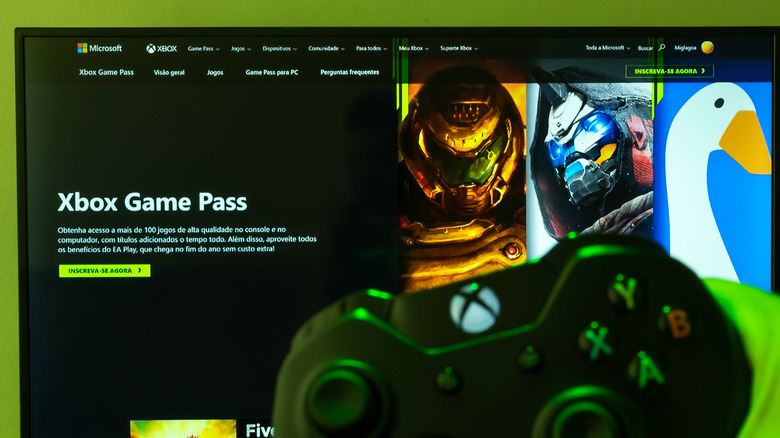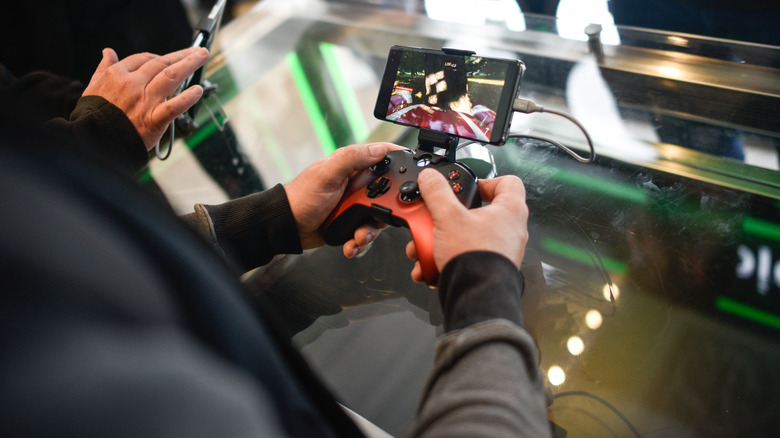Xbox Keystone Game Streaming Dongle Shelved: Here's Why
There was a kerfuffle in the gaming world recently about Microsoft Gaming CEO Phil Spencer potentially teasing the rumored Xbox streaming stick codenamed Keystone. The picture that set off speculation from nerds everywhere seems to show an unassuming little white box, chilling contentedly under Spencer's shelf-mounted sword.
Vault Boy left the shelter and stopped by my office to celebrate the #Fallout25 Anniversary. Congratulations to the @Fallout @Bethesda teams on this major milestone for an iconic franchise. pic.twitter.com/hGoN1sAQRK
— Phil Spencer (@XboxP3) October 10, 2022
Whispers in the gaming world already suggested Microsoft might be working on a dedicated streaming box that would deliver some portion of the Xbox game library in purely cloud-based form. That low-profile hardware on Spencer's shelf looked an awful lot like "theory confirmed." It could have been the Keystone, an Xbox-branded tool with a profile and use factor resembling an Amazon Fire TV or Chromecast stick, but with the processing power of Microsoft and a library of Xbox games to sweeten the deal.
The rumors were half-right: that anonymous little dongle under Spencer's sword was a Keystone. Alas for fans of Microsoft and the cloud, it may well have been the only Keystone.
No Keystone, but new cloud solutions
In a talk with Sarah Needleman at WSJ Tech Live, Spencer addressed the Keystone's future: "Keystone was the codename of something we were incubating internally, which was, think of it as a streaming console, so there's no local gameplay, low cost, plug it into your television and you'd be able to stream to your television the Xbox games that are available."
Spencer went on to explain that in "late spring," the company took a turn and focused instead on working with Samsung to get an app on its smart TV platform, one that makes it possible to play games. The Keystone prototype still exists sitting on that aforementioned shelf, and Spencer says he "suspects" Xbox will introduce a streaming device for gamers at some point. However, he notes, "I think it's years away."
All is not lost for Xbox fans, however. In the same talk, Spencer reaffirmed Microsoft's commitment to cloud gaming, working in a well-earned humblebrag that Microsoft's existing cloud offers had just passed 20 million users. He also repeated Microsoft's overall cloud strategy to deliver platform choice to players, simultaneously making games accessible through the cloud, making inroads into the mobile gaming industry, and keeping up with conventional software publishing. Microsoft's plans for cloud and mobile gaming will require significant, long-term cloud processing commitment. Xbox users may not be getting their own dedicated dongle anytime soon, but according to Spencer, there will be a variety of cloud-based options for fans to look forward to.

